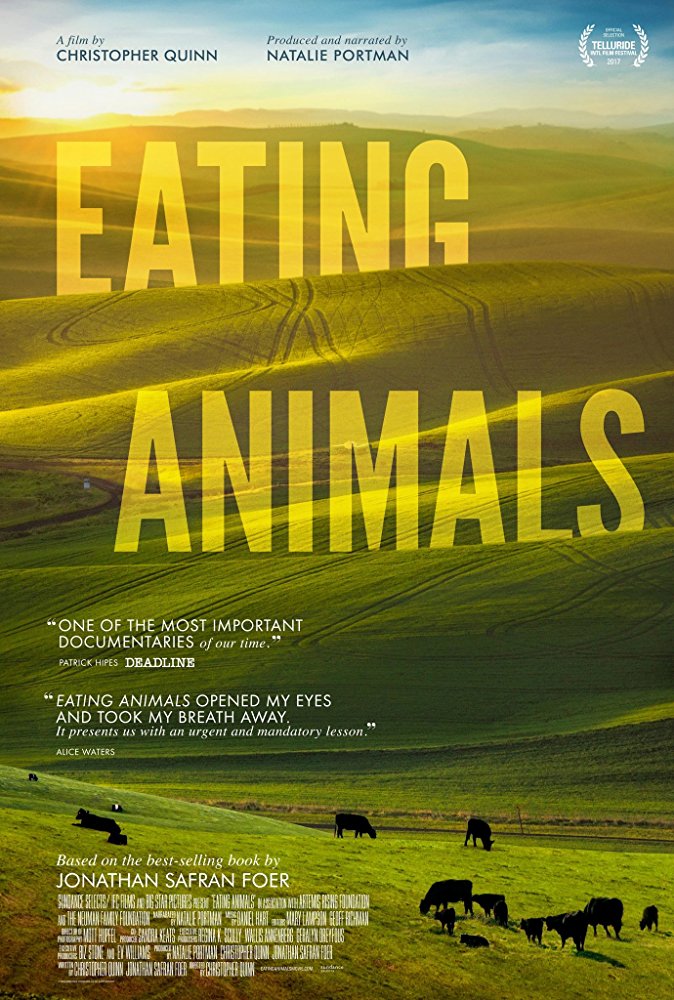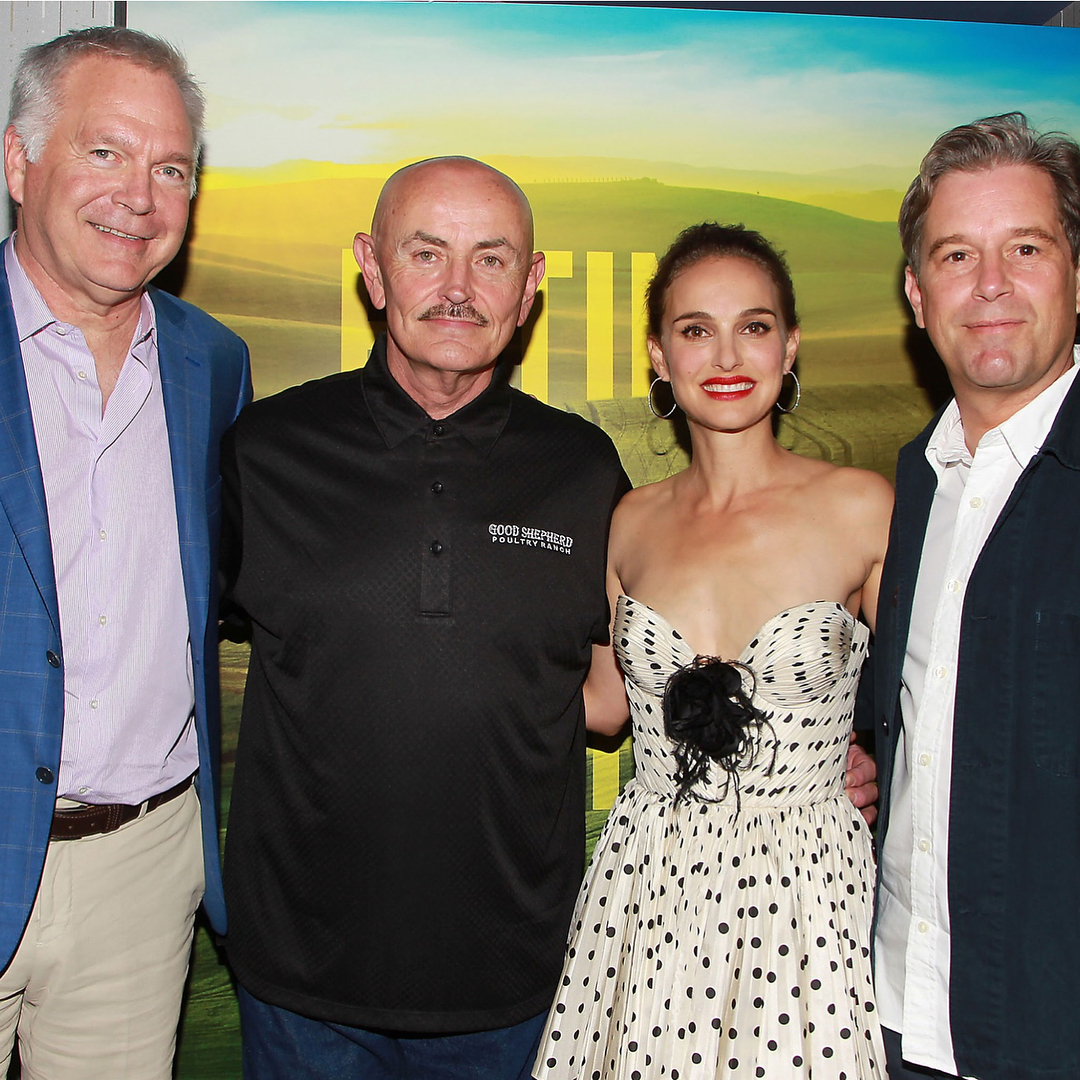Eating Animals is the latest in a series of recent movies about food, environment, and health. The movie is based on Jonathan Safran Foer’s 2009 book with the same name. Co-producer and ethical vegan Natalie Portman has helped to elevate the documentary to one of the current “must-watch movies.” But what is the movie truly about? We have the cliff notes for you here.

First, what it’s not about:
Although the film addresses the inhumane conditions that farm animals experience within the vast factory farming system, don’t expect this movie to talk about animal rights in depth. While it toys vaguely with the fundamental question if eating animals in itself might be the problem, the movie doesn’t really go into details and it doesn’t put this question at the center.
What it is more about:
Rather than a documentary primarily focused on animal rights, Eating Animals is about seriously questioning the mass production of meat, poultry, dairy, and eggs. The film analyses factory farming with a special regard to its consequences for farmers who are not willing to subject themselves to the monopolized and highly exploitative system factory farming has become.
What it’s not about either:
Eating animals is not about going vegan. You will not walk away from the movie feeling like you have to give up animal products. At no point does the movie go into detail about how many human and non-human animals could be saved by a plant-based diet.
What’s it’s really about:
Rather than advocating for a vegan transition, the movie takes a more reducetarian approach. It pushes consumers to reduce animal consumption and to ask where the animal products they eat come from in terms of production methods. It shows the pain of some of the farmers and animals who are part of this system and promotes a more mindful approach to eating.

While Eating Animals is a beautifully shot and produced movie, it also lacks to take on a more stark and determined position in pushing consumers to make a real and systematic change. Cutting out a few animal-based meals here or there seems to be enough as far as the film is concerned. The danger with this very lax approach is that it leaves a lot of room for interpretation and it gives anyone an easy out who replaces breakfast once a week with a bowl of oatmeal while continuing to consume steak, eggs, and dairy–it’s one meal, isn’t that enough?’ Unfortunately, this isn’t enough, especially when the link between factory farming/animal consumption and climate change is so clear and the suffering it causes animals is so obvious. I personally wish the movie wouldn’t run away from the only logical conclusion it based its whole argument on–which is we need to all radically reduce animal consumption, right now.
Have you watched Eating Animals? What were your thoughts?
Also by Isabelle: From Fat Burn To Focus, The Perks Of Intermittent Fasting Are Insane. I Tried It
Related: Natalie Portman & Russell Simmons To Be Honored For Their Environmental Activism
You Heard It Here First—These 4 Vegan Documentaries Will Change The World In 2018
Get more like this–sign up for our newsletter for exclusive inspirational content!
__
Photo: IMDB, Natalie Portman via Instagram
